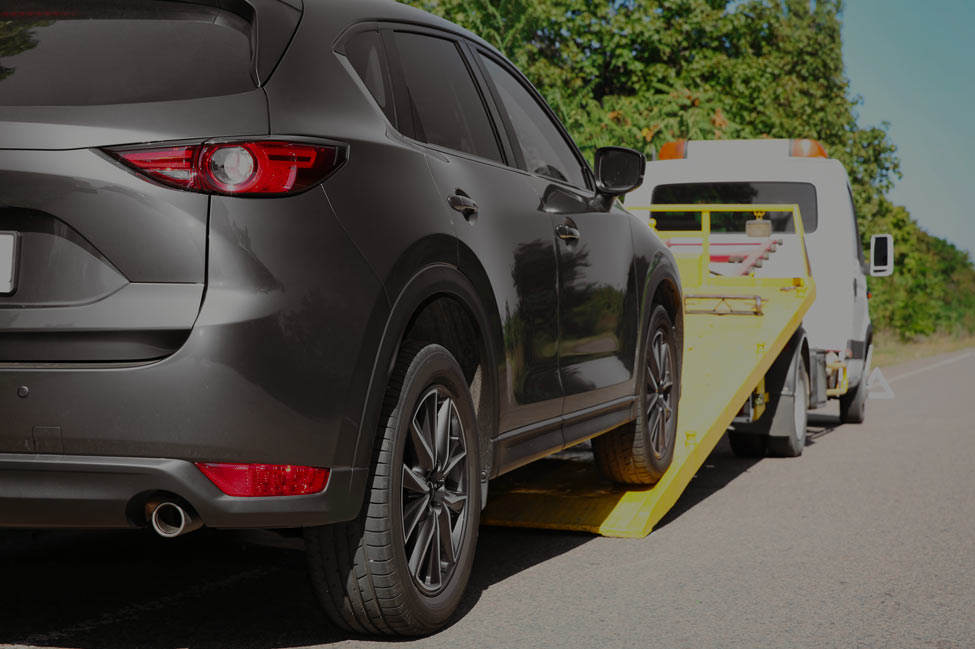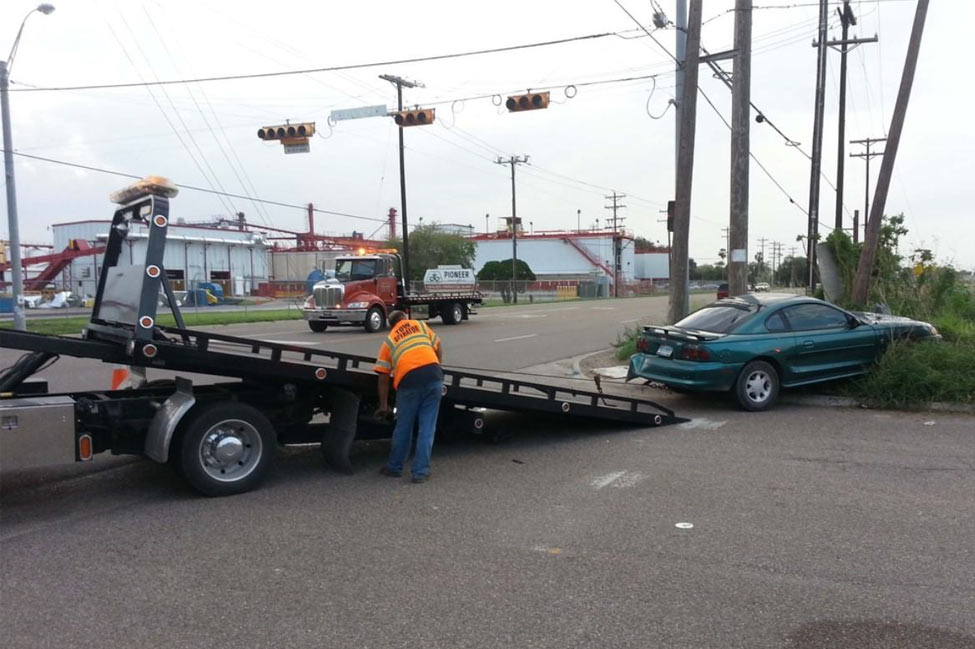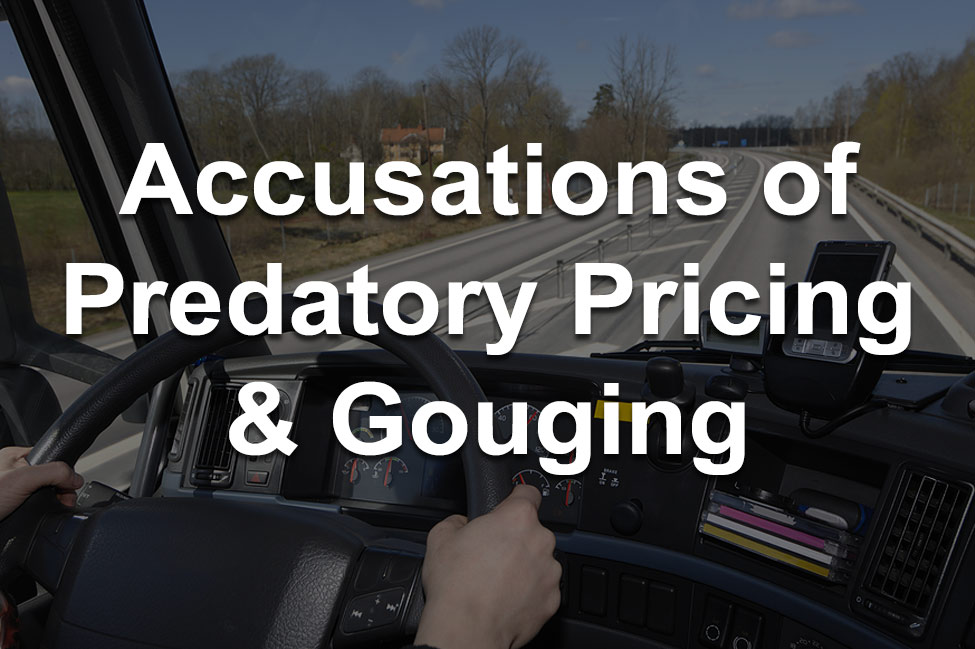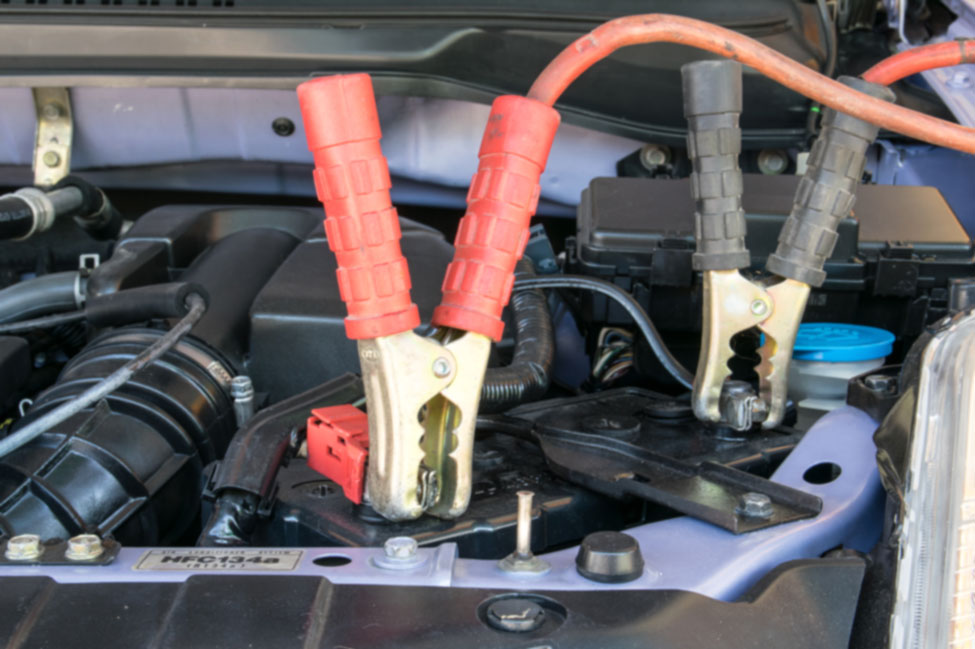So, you want to learn how to start a towing company? Good for you. Over the last five years, the economy has been booming, and unemployment is at 50-year record lows. This means more folks are commuting to work than ever before. So demand for dependable towing and roadside assistance is continuing to rise.
A May 2019, Market Research Report by IBISWorld revealed that there are more than 49,000 towing businesses in the United States. And the number is growing by leaps and bounds. With more than $8 billion dollars in revenue being generated in the US every year, now’s the time for starting a towing business.
How To Start A Towing Company in Your Town
Despite the numbers from above, and what you may have read out there on the interwebs, it may or may not be a good idea to start a towing business in your hometown. Countless variables go into starting your towing business. First and foremost being; there must be sufficient need for towing services in your area.
Tow truck business income does not come without demand, and if the town you choose to set up your business is too small, most likely, you’ll be wasting your time. So, to help you avoid making costly mistakes, we’re going to layout a simple towing business plan. And it all starts with where you start your business. So, if you want to learn how to start a towing business in 2020 and beyond, read on.
Learning How To Start A Towing Company
In this article, we’re going to discuss what you should look for when choosing where to start a towing company, plus a whole lot more. So, before you go out and buy a brand new $100,000-dollar tow truck and start signing contracts with insurance companies, we’re going to fill you in on things you’ll need to be aware of.
We’ll talk about what kind of truck(s) you should buy. What types of insurance are required? How much cash in the bank you should have. What type of towing business you’re going to start. And so much more. But before we get into all of that, let’s talk a bit about why some towing businesses fail.
Why Towing Businesses Fail
Although more than 50% of new businesses fail during their first year, it’s a lot more ominous than that. The Small Business Administration (SBA) says that only about 30% of new businesses fail during their first two years. But listen to this, 50% of the ones that make it past that milestone fail during their first five years, and 66% go out of business within ten years.
What this means is that business owners are hanging on for longer and longer periods. They’re losing more money, and more importantly time, due to a single psychological factor called Ego.
Of course, none of my readers have become afflicted with Ego. But I must discuss it here anyway. So that you can avoid making the same errors in judgment many of these business owners made. You see, due to failures in properly investigating their market, or not marketing their businesses properly, many new towing business owners find themselves in over their heads. And, when things begin going south, rather than making the decision to move in a different direction, many will double down and drive on.
In an attempt to avoid looking like a buffoon who’s made an unwise business decision, many business owners put more time, effort, and money into their towing business to try to keep it afloat.
Simply put, the reason many of these guys stick around is that the business owner has become too self-identified with the business. And he’ll sacrifice everything to keep his baby going. Time, headaches, money, health, even family—they all lie in the background. That is, until the painful moment that he decides to finally let it go and, say, tow truck business for sale.
I want to help you avoid this anguish. The towing industry has its ups and downs. For you to take advantage of the ups and properly deal with the downs, you’re going to need to learn a little something first. So soak up this information, learn from it, and live by it, and with proper implementation, you’ll be well on your way to owning your own towing company.
Time Requirements for Starting A Towing Business
I don’t mean to be blunt here, but motorists don’t care about you or your time. They only care about a towing business at the time they need your services. This means you must be available when they call. Most towing companies operate on a 24-hour basis. And when starting out as a brand-new towing business, this is especially critical.
You will want to run as many calls as you can. So you can put more money in the bank. And…here’s the kicker—You will not be able to run a towing business as a side gig. If you’re working a full-time job and attempting to start a towing business on the side, you’re just asking for trouble.
And if you are thinking about operating your roadside assistance business as an outside investor and allowing others to do the work of tow company dispatching and towing, there are some things you need to consider. If you don’t have a general understanding of the operations side of the business, you are putting yourself at a severe disadvantage.
Challenges will arise in the business, and if you don’t know how to respond, you’ll need to rely on key people to make decisions for you. And these are people who may or may not take advantage of your absence and ignorance of the situation. This is not to say that you can never release a modicum of control, but if you don’t have a good grasp on what’s going on, you could be losing money hand over fist.
I suggest that you have hands-on knowledge of every role that’s required to make this business work. Answering the phone, dispatching tow trucks, towing using a flatbed, towing with a wrecker, accident recovery, dealing with motor clubs, handling price objections, and a whole lot more.
Once you have a better understanding of the requirements for each task, you’ll be better able to delegate these responsibilities to your employees. And this experience will pay off in dividends down the road.
Where To Start A Towing Company
Choosing where to start your towing company should be done in conjunction with the type of business you want to start, as well as your goals for growing your business. Unfortunately, this is not how most tow company owners choose where to start their businesses. And this is why, in part, so many have a hard time reaching their goals.
Many tow company owners simply choose to open their business in their hometown— because that’s where they are known. Having a good reputation is a good start; it can help to open a lot of doors. But if there are only a small number of doors that can be opened, meaning there is little demand for towing and roadside assistance in your town, the opportunity for growth is severely limited. So, that’s why I suggest you start by getting an idea of the level of demand for towing-related services in your area.
There are many tools and resources you can use to determine potential demand. You can get the population and demographics of our prospective market from your local Chamber of Commerce. And you can use Google’s Keyword Planner Tool to determine the level of search volume in your area.
As a general rule, I suggest that you concentrate your efforts in an area where the population is no less than 40,000 people within ten square miles. Towing and roadside assistance services are always going to be in demand in every area, but you have a better chance of prospering if you are in more densely populated area.
Towing Requirements of the City
Also, before deciding where to set up shop, you must take into consideration the requirements that the City, County, and State have in place—for the type of towing business you want to start. Otherwise, there may be tremendous consequences down the road.
Let’s say you decide to open a towing business in your city, and you want to get on police rotation. In many cases, having a spot on police rotation will require that you are available 24 hours, have a minimum number of trucks and operators, and have a secure, fenced, and lighted storage facility—that’s located within a certain distance from the city. Meeting these conditions will require a substantial investment. An investment you may not be prepared to make.
So, rather than hoping you make the right decision and allowing your fate to be determined by the winds of chance, I suggest you take a calculated approach at deciding where to start your business.
Buying A Tow Truck
When purchasing a tow truck, you’ll need to take many things into consideration before pulling the trigger. Do you buy a new or used? Do you buy a flatbed or a wrecker? Do you pay cash or finance the tow truck? What type of additional equipment is necessary? The answer to most of these questions is…It depends. It depends on what type of business you are going to start.
If you were to come to me and say that you wanted to start a repo business, I would advise you to look into a wrecker equipped with a wheel lift, an autoloader, or maybe even a Sneaker. If you said you wanted to start a consensual towing business, I would suggest that you buy a flatbed as your first tow truck. And, if you wanted to do police towing, I would suggest both types of trucks.
New Versus Used
Regardless of the type of towing and roadside assistance business you start, having dependable trucks and equipment is a must. The last thing you need is for your tow truck to need a tow. That being said, all trucks, new and used, will have maintenance needs and repair issues that you must contend with. Of course, newer trucks will have fewer problems and may still be under warranty.
When starting a towing company, purchasing a brand-new truck may be doable. A new tow truck can cost more than $100,000 dollars. And even stretching a loan out seven years, as some banks are allowing, your monthly payments on a $100,000 loan will be around $1300 dollars. Trust me; you don’t want to be saddled with a big payment like that when you’re just starting out.
I always suggest that when starting a new towing business, you find a good, used tow truck. Look for a truck with less than 100,000 miles, preferably, and one that’s less than seven years old. When searching for a tow truck to buy, you can usually find something that’s not too unreasonably priced in one of the many Facebook groups, or even on eBay. Also, there are a lot of good tow truck dealerships around.
Flatbed or Wrecker
When it comes to determining if you should purchase a flatbed or a wrecker as your first truck, the answer depends on the type of towing your company will engage in. If you’re only providing private parking impound service or repossessions, you’ll be better off purchasing a wrecker with a wheel lift. But, if you’re going to concentrate on consensual towing, otherwise known as “retail towing,” you’re going to want to choose a flatbed tow truck.
If your business is engaged in police towing, most likely, you’ll be required to have at least one of each type of tow truck. If not, I suggest that you purchase a wrecker equipped with a wheel-lift and boom, with two winch cables. Police towing involves accident recovery, and while you can perform accident recovery services with a flatbed, wreckers are much more versatile.
As far as what wrecker bodies to choose, I like the Vulcan 882, from Miller Industries. It’s perfect for providing light-duty towing, as well as accident recoveries. But, if you’re going to do more than just light-duty towing, you might want to look into the Vulcan 892 or 894.
These beds have a tow rating of up to 20,000 pounds, whereas the 882 is only rated for 10,000 pounds. And the 894 also has more winch capacity, dual-line winches rated for 12,000 pounds, compared to the 882’s 8,000-pound winches.
Also, if you can get it, I prefer composite or aluminum beds over steel beds. If you’re in an area that gets snow, the salt and elements that are used on the roads eventually eat away steel. This is not the case with composite and aluminum beds.
When specking out a flatbed tow truck, I suggest you steer clear of beds that are less than 21 feet in length. You will want to have enough space on your deck to tow any passenger vehicle on the roads, and an F350 King Ranch can be as long as 22 feet. Plus, avoid beds with fixed side rails.
You’ll want removable rails so that you can move a wide variety of vehicles and equipment. With removable rails, you can relocate garden sheds, tow oddly shaped pieces of machinery, and even trucks with aftermarket suspensions and wide tires.
Tow Truck Insurance Requirements
If you are operating a consensual towing business out of your home and you do not have a commercial location and do not engage in any type of non-consensual towing, you’re going to need a minimum of three types of insurance coverage.
- General Commercial Liability. This covers liability claims of third-party personal injury or third-party property damages.
- On-Hook Insurance. On-Hook insurance will cover your business if a vehicle becomes damaged while attached to your tow truck.
- Cargo Insurance. Cargo insurance will cover the vehicle owner’s belongings left inside the car during a tow.
Of course, for all three of these policies, your business is only covered up to the limits of liability specified in the policy. This is why you might also want to consider purchasing an Umbrella Insurance Policy. An umbrella insurance policy is an extra layer of liability insurance coverage that goes beyond the limits of the other three policies. It’s like a bulletproof shield for businesses that are at risk of being sued.
If you are operating a non-consensual towing business that has a storage facility, you’re going to need one more type of insurance coverage, Garage Keepers Insurance. Garage Keepers insurance provides your business protection against a customer’s vehicle being damaged by fire, theft, vandalism, or collision—while on your property.
For towing companies who provide repossession services, you might want to consider a Wrongful Possession Insurance Policy. As the name suggests, this insurance policy is to protect your business from any damages that might arise from repossessing the wrong vehicle. You may think that a General Liability insurance policy would cover this, but it does not. So, keep yourself safe and get this insurance policy as well.
If you are going to have employees, depending on what state you operate, you will be required to have Workers’ Compensation Insurance. In the state of Missouri, employers with five or more employees are required to have Workers’ Compensation Insurance. But, in Arizona, all employers are required to provide this coverage, regardless of the number of employees.
How Much Does It Cost To Start A Towing Business
When determining how much money you’ll need to start a towing business, I suggest that you have a minimum of six to twelve months’ worth of expenses set aside before you start. I believe it is in your best interest to avoid borrowing money to start your business.
The only caveat here is if you must borrow money to purchase a tow truck. And when borrowing, you may be required to put some money down, which is a good thing. The more skin you have in the game, the more motivated you’ll be to make this thing work.
If you have a spouse whose income will cover all of the household expenses, you’re in much better shape. But, if not, you should have a full twelve months’ worth of both living and business expenses. If you don’t have that much set aside, you may need to postpone your start date until you do.
Also, ensure that you keep business expenses separate from household expenses. And, you will want to use some kind of accounting software to keep track of the books. QuickBooks Online is a great tool that allows you to connect directly to your business bank account. This way, you’ll have real-time reporting that allows you to see whether or not your business is profitable.
Tow Company Expenses
In all businesses, there are two types of expenses, fixed expenses, and variable expenses. Fixed expenses are things like rent, insurance, phones, uniforms, marketing, and interest. Variable expenses are fuel, repairs, damages, and maintenance. To make the distinction between the two, simply determine if the expense in question goes up as sales volume increases. If so, it’s a variable expense.
Below is a list of some of the fixed expenses you will incur and an approximation of the monthly cost for each. These estimated amounts are dependent on many conditions which may include your geographic location, your age, your creditworthiness, demographics, and others.
Monthly Fixed Expenses
- Rent $800-$4000. Operate out of your home to avoid this expense.
- Insurance $700 – $1200 Per tow truck
- Phone $100 Per Phone
- Uniforms $30 Per person
- Marketing $1400 minimum Google Ads, and at least 4% of revenue past breakeven.
- Interest $700-$1000 Dependent on the truck you purchase
Your variable expenses will be dependent on the number of service calls you provide each month. And they will increase as your sales increase.
Variable Expenses
- Fuel
- Repairs
- Damages
- Maintenance
Your monthly fixed expenses can run as low as $2630.00 (even less if you operate out of your home) or as much as $4930.00, or more, depending on your location and other factors mentioned above.
The monthly variable expenses you incur will not only be dependent on the number of service-calls you run but also on the care you take while running those calls. Damages can be a major factor in this industry. Make a mistake unlocking a BMW, and you’re either paying out of pocket for a paint touch-up (if you’re lucky), or you’re filing an insurance claim that may increase your insurance premiums.
The amount of money you will need to begin your business will also be dependent on the type of business you choose and on your choice of location. For example, if you decide to start a non-consensual towing business, you will need a physical location to store vehicles. And…depending on the real estate prices in your area, and the requirements to operate as a non-consensual towing business, you may incur a substantial investment.
What Type of Towing Business Should You Start?
When it comes to determining what type of towing business you should start, there are two basic types of towing businesses. They are consensual towing and non-consensual towing. The type of towing service you choose to offer will affect every other decision you make when starting out. Of course, the two types of towing businesses available are not mutually exclusive; you can operate both types at the same time.
Consensual towing, also referred to as “Retail Towing,” is providing towing and roadside assistance services to customers who request your services. Consensual towing can occur when a vehicle owner or someone operating on behalf of the vehicle owner calls you to provide services. Non-consensual towing is when a tow truck operator legally removes a vehicle from private or public property without the consent of the vehicle owner.
There are three types of customers who utilize the services of a towing company that provides non-consensual towing; they are; law enforcement, private property owners, and commercial property owners & managers. When you tow a vehicle that has been illegally parked or abandoned, you are working on behalf of either the property owner/manager or law enforcement.
If you tow the vehicle back to your storage facility, otherwise known as an impound lot, there are certain statutes and ordinances you must abide by, including Police Notification, Notification of all parties with a legal interest in the vehicle (within a time-frame specified by law), And how you intend to dispose of the vehicle if the property owner does not claim it and pay your fees.
When starting a non-consensual towing business, it is your responsibility to learn and abide by all the requirements that your state and local governments have in place. You may be required to provide free storage for a certain number of days. And some cities have rate caps for towing and storage.
Also, some cities utilize third-party police dispatching companies when it comes to non-consensual towing, which may hinder your ability to enjoy other revenue streams available in cities without third-police dispatching companies.
When choosing to operate a consensual towing business, in most cities, you will not be required to have a commercial location where customers can visit. The main reason is you will not need to store vehicles. Operating a consensual towing business out of your home is acceptable in most cities. Of course, there may be ordinances that prohibit the parking of commercial vehicles on residential streets. So, be sure to check with your city.
What is required is that you have a business license, be properly insured, and, in many states, you must be registered with the Department of Transportation or some other state agency.
You may also be required to—
- Have some sort of formal driver training certification.
- Have a specific class of driver’s license
- Have your tow trucks inspected regularly.
- And provide a Certificate of Insurance (COI)
The type of licensing and training required to operate as a consensual towing company will vary from state to state, as well as from city to city. You may also be required to obtain specific government permits and/or training certifications from specific vendors, including TRAA and WreckMaster.
Deciding what type of towing business to start can be a daunting task. While non-consensual towing is the most lucrative by far, considering the investment required and the ROI, it may not be as great as simply operating a consensual towing business out of your home.
As you can plainly see, when starting a towing and roadside assistance business, there are many things to bear in mind. In the space allotted, I have tried to provide you with an overview of the things you’ll need to consider when starting out. And while the information provided here is quite extensive, you should do your due diligence before starting your towing company.
There is tremendous opportunity in the towing industry, but if you don’t take precautions, you can get in over your head really fast. So, good luck and good fortune. And remember, The Tow Academy is always here to help you along the way.







Hii
Don G Archer
Your Blog Is Very Good And Very Helpful
This was helpful, thank you.
Mikala, Thank you. I am happy to hear that you received some value from the article.
Hi Don, thank you so much for taking the time out to teach the newer folks. I was wondering how a consensual towing company would start with in marketing. How did you get your first customers? How long did it take for your business to make money?
Danny,
Customers for consensual towing services come through a variety of means. We always start with a combination of organic online marketing combined with paid online marketing and gathering a ton of reviews for your Google Business Profile. At the same time that we’re working on these, we coach and encourage the people we work with to foster relationships in the community and look for opportunities to partner with law enforcement and other businesses.
But, let me be clear, success is not something that happens overnight. While we can get your business on the front page of Google in a relatively short time, you must willing to invest in your business, be patient, and stay committed to the process.
Last week a long-time customer who was kind enough to share some information that ties well to this comment, completely unsolicited. Here’s a small snippet of what he said, “The Tow Academy helped us generate $42,595.25 in cash calls last month, not to mention all the contacts we have capitalized on from the website you built for us, and the organic search results…all in all, from the website and google ads, you have helped us tremendously in our success, the tools and dedications The Tow Academy has given us have propelled us into a level I could have never realized on my own, WE THRIVE, because of The Tow Academy, and your team.”
Thanks for the comment, I think you’ll get a lot of value out of this book.
Good luck and let me know if you need any help with your business.
Thank you, Don. Very good information.
Angel,
I’m glad to hear you got value from the information.
Thank you
This is very helpful thank you
Read every sentence word by word if it was the Holy Bible !! Very helpful info thank you..
Thanks, Hugo
Hey don my name is Eric Eller I am a master machanic and fabricator and tow provider ..Im from California but am in pa for the second time in ten years came out hear ten years ago and worked for free just about to pull a friend of mines tow company out of the ground well hear I am ten years later back in and doing the same thing except this time I’m getting my name on paper and I’m gonna by a couple trucks of my own with my buying power of the business I’ve already made a couple websites because I tell my buddy it is all about the advertisment..well he doesn’t want to spend the money ..should I tell him to spend the money to put us on top of Google or I’m going home because it will make that much of a difference ..because I’ve been hear a month trying to make it happen and ain’t made but $300 on a good week after all his bills and I’m running auto shop getting it started 7 days a week sometimes tell 9: at night ..any advice because I’m not gonna work my self to death trying to get everything rolling for him if its all in the advertisement he don’t want to pay for.
Eric, I can’t advise you specifically because, other than PA, I don’t know your location and therefore don’t know the demand for services in your area. But I can tell you that successful for-profit businesses use various methods of customer acquisition to grow. If your buddy is happy schlepping along getting nowhere, then, yes, if I were in your shoes I would seek my fortune elsewhere.
Thanks and good luck
This is very good information, thank you
Victoria, thank you. I am glad you found value in it. Let us know if we can be of further assistance.
Thank for this information, starting a towing business was something I was actually just wondering about and it cleared up a lot questions.
Nicole, I’m glad to hear that it was helpful, Thank You
I have a tow truck and want to start doing business with geico, farmers etc, What should I do to start working with them?
Speedy,
If you want to start working for the motor clubs I suggest that you get the Roadside Assistance Business Blueprint, you can find more information on it here. I’m not sure if you are aware of this, but motor clubs don’t pay very well. I suggest you use the information provided in this book to leverage the work you get from the clubs into higher paying cash calls. Good luck
Hi Don,
This was excellent information that I was looking for. My question is a little different, but important nonetheless, and I feel you might can help. I’m working on a PhD, but also want to give a shot at running my own rollback out of my home. I’ve wanted to do this for a long, long time. Is it worth doing both at the same time, or in your opinion would I be in over my head. The downside here is making time for my PhD work, the upside is I’m a go getter, plus my wife can cover all the household expenses on her salary alone. What is your opinion?
Hey man you make me wish I had the funds to start RIGHT NOW !!!!
Hi.
I have Cdl ran across your lesson after looking for a towing position
Quickly i thought to myself and googled (how much is a tow truck).
A lot of the information you shared I considered and had a general idea.
I must say, you gave me a better vision.
Your knowledge covered more of every angle.
I’m asking myself if you killed a quick dream real quick or was it just quick idea.
Either way ,thank you for all the good information champ.
I’m about to take a leap of faith in starting my tow truck business… and this information was very helpful. Thank you
Gooseneck Trailer be considered as a flat bed tow , and even have a For life License Plate In Florida ?
Also what Insurance should the Gooseneck Trailer have ? We are pushing trailer with a F350 and starting our consensual towing company
Hi, Don,
I just purchased my first tow truck and had some questions regarding generating business. I would love some tips from you if possible.
Thomas,
Thanks for commenting, if you have specific questions, you can email me at don@thetowacademy.com. My time is limited, but I’ll try to answer if I can. Conversely, I’ve written a book that tackles the topic of generating business for towing companies. You can find it here. Thank you.
it’s good to know that tow truck drivers are usually required to have certification. I’d imagine that this is important for towing. Even more so for large commercial towing.
This is one of the most relevant and important blogs out there about starting a towing business and drives home some principles that are applicable in almost every other new business venture as well. The main one that I see from businesses that I work with is not PROPERLY investigating the market. The groundwork HAS to be done beforehand. I love that you highlighted the MARKETING aspect of it as well because, let’s be honest, tow truck company owners aren’t excited about it, but it’s a crucial necessity. Makes me glad that we’re doing things right at Closest Tow Oxnard. Great read and feel free to take a peek at our website and message me any helpful additional info you think we should include. Always looking to get better at telling what we do!
Thanks for the comment. I did take a look at your website link, but all that’s there is “A New WordPress Site, coming soon.”
Hey Don, thanks for acknowledging and taking a peek. I believe we were making some tweaks on the day I read your blog post. Feel free to take a look now. And Happy Holidays to you and yours!
Very helpful information
This article is so beneficial. This would surely help readers a lot.
Don,
I would like to start towing company.
Laludin,
If you’re interested in starting a towing company, you can get more information by clicking on our “Articles” menu tab or our “Books” menu tab.
This was very helpful, but do you think it is possible to starting a towing business without driving it yourself. Like what advice do you have for someone who had the money to fund and run the business but doesn’t want to drive trucks at all.
Tony, It is possible to start a towing business without driving a truck yourself. I suggest you get our book, “How To Start a Towing Company.” It will give you a better idea of the challenges you’ll encounter and how to overcome them. Of course, there are some drawbacks to starting a towing company without having first-hand knowledge of operating a tow truck. You’ll be required to depend on tow truck operators who know more about the capabilities and limitations of the trucks and equipment. And while can find good people in the industry who can help you learn what’s required, an unscrupulous tow truck operator may use their knowledge as leverage over you. It’s best to have someone you can trust in the industry, so you don’t become dependent on any single tow truck operator. Let me know if you need help.
Thanks
I love that you shared that towing companies need to have insurance for their tow truck. My husband and I are trying to find a reputable towing company to contact in our time of need. We think it’s always good to have one in our contacts just in case!